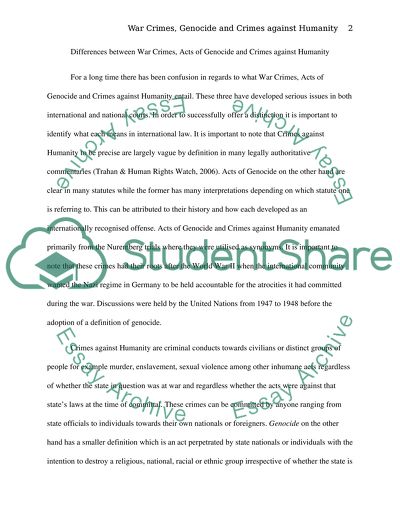Cite this document
(“Differences between War Crimes, Acts of Genocide and Crimes against Essay”, n.d.)
Retrieved from https://studentshare.org/environmental-studies/1414122-what-is-the-difference-between-war-crimes-acts-of
Retrieved from https://studentshare.org/environmental-studies/1414122-what-is-the-difference-between-war-crimes-acts-of
(Differences Between War Crimes, Acts of Genocide and Crimes Against Essay)
https://studentshare.org/environmental-studies/1414122-what-is-the-difference-between-war-crimes-acts-of.
https://studentshare.org/environmental-studies/1414122-what-is-the-difference-between-war-crimes-acts-of.
“Differences Between War Crimes, Acts of Genocide and Crimes Against Essay”, n.d. https://studentshare.org/environmental-studies/1414122-what-is-the-difference-between-war-crimes-acts-of.


